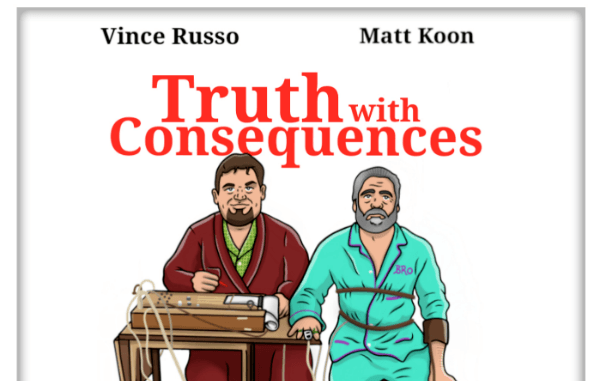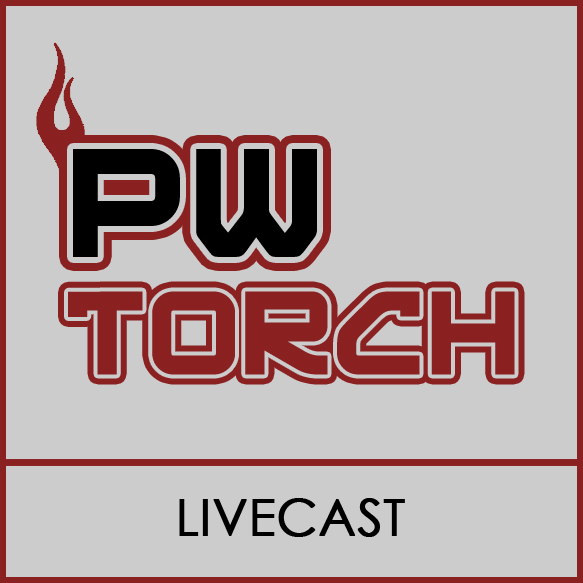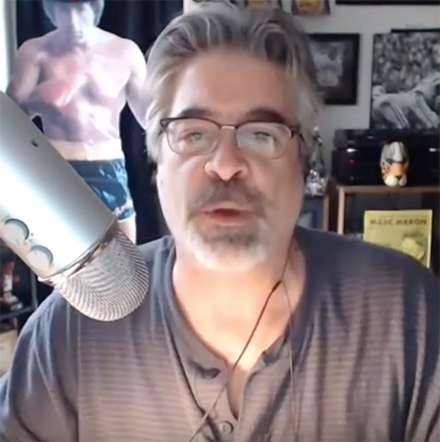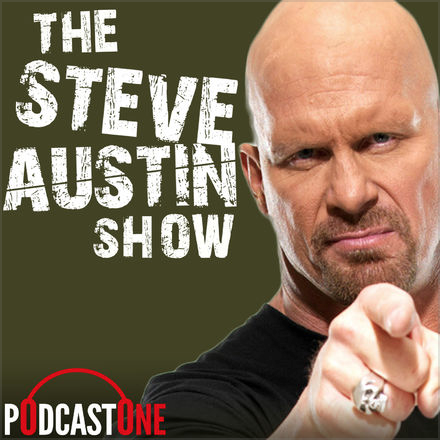
Truth with Consequences – The Dirt Sheets Vs. Vince Russo
Release date: November 25, 2018
Recap by: Caitlin Lavelle
DIRECT LINK TO LISTEN DOWNLOAD
In this episode of Truth With Consequences, Matt Koon & Vince Russo attempt to dissect the reasons behind and history of Russo’s conflicts with ‘dirt sheet writers’, including Dave Meltzer, Wade Keller, Bryan Alvarez & Bruce Mitchell.
What’s a Mark?
Russo explains that historically, the definition of the term ‘mark’ comes from carnivals, where a worker would put chalk on his hand and slap the back of a patron who had spent a lot of money on a carnival game, literally ‘marking’ them and making it apparent to their fellow carnival workers that this patron was willing to spend large sums of money.
Russo says that by this definition, he’s a mark for several things, including albums, KISS and Howard Stern. However, Vince says he uses a different definition of the word mark, and that to him a mark is a wrestling fan that has crossed the line into obsessive fandom and convinced himself that wrestling is real, and that this is both unhealthy and dangerous. Russo says this is what he tries to convey on his show, Castrating the Marks.
Vince says Meltzer, Keller, Alvarez and Mitchell get offended by the term ‘mark’ because they want to be viewed as professional journalists while acting like super fans. Matt Koon pushes back, telling Russo that Meltzer & Keller are making money by covering wrestling and asks Vince whether the only thing making them ‘marks’ is their differences of opinion with Russo.
Russo insists that this isn’t the case, and that Meltzer & Keller are marks because they aren’t being honest about who they are. Vince says he could have an MLB podcast and make money, but that it wouldn’t give him the credentials to call himself an expert or a professional in the field, but says when you draw the same parallel with Meltzer or Keller, they view this as an insult rather than a fact.
Access to WWE
Matt Koon asks Vince Russo what separates Dave Meltzer and Wade Keller, who make a living from covering wrestling, from other Sports Journalists. Russo argues that the difference is that Meltzer, Keller and other “dirt sheet writers” are not given access to WWE, so they are just like any other fan.
Matt argues that some wrestling journalists do enjoy a certain level of access to WWE, citing Triple H’s media conference calls. Vince argues that wrestling journalists aren’t allowed in WWE locker rooms like journalists are in other sports. Koon argues that this is an unfair comparison, as wrestling journalists are covering a ‘worked’ product in a closely guarded environment, unlike professional sports. Vince retorts that the wrestling business is no longer secretive, and says people like Sam Roberts are given access. Koon argues that Roberts and others with WWE access are operating within parameters at WWE in order to maintain this access.
It’s Still Real to Me, Dammit
Vince Russo says that he believes ‘dirt sheet writers’ like Meltzer, Keller, Alvarez & Mitchell believe wrestling is real. He point specifically to Keller, who he calls “the worst,” and says “cuts everyone’s promo for them,” on his show, proposing what talent should be saying to get their storyline across without mentioning the writers or producers that work on WWE characters and scripts.
Russo also points to the four writers’ behavior during All In weekend as evidence that they think wrestling is real and are self-obsessed. Matt Koon argues against this, saying he was at All In and witnessed Mitchell, Keller, Meltzer & Alvarez watching All In anonymously and reviewing the show after it wrapped up. He says Keller was even anonymously passing out business cards at All In, trying to get more listeners for his podcast.
Matt tells Vince that he’s misrepresenting Wade Keller, arguing Keller is trying to promote the best experience for fans, but Russo says that if this was truly the case, Keller wouldn’t try to discredit Russo, because Vince believed he is the person who created the best fan experience in wrestling.
Everybody Hates Vince
Vince Russo says that Wade Keller hates him and calls Vince things that he is not. Vince says he has reached out to Wade to try to discuss this privately, but that Wade refuses to get back to him.
Vince says that he doesn’t hate Wade Keller, and that he actually finds it entertaining when Wade imitates wrestlers and cuts imaginary promos, likening this to a parody of wrestling journalism that one might find in a Christopher Guest movie.
Vince elaborates that the difference between himself and all ‘dirt sheet writers’ is that he doesn’t hate them, but they hate him. He says these writers want to ruin his life, but that he just finds them funny.
Matt brings up a widely-reported comment Vince made about the way some male wrestling fans react to male wrestlers, calling their reactions “abnormal.” Russo also classified these reactions as “homosexual.” Many wrestling fans and journalists panned these comments as homophobic.
Russo stands by his comment that there is something abnormal about the way some male wrestling fans react to male wrestlers, and says this has nothing to do with being a homophobe. Matt Koon asks for clarification that Vince is not homophobic, and Vince assures Matt that he isn’t, because Vince has “a Transgender who hosts a show on the Vince Russo Network,” whom he calls, “entertaining, colorful, a character. I love the crap out of her.” Vince says this doesn’t change the fact that he’s never seen male audiences react to male performers the way wrestling fans do.
Koon asks, “Are you implying something is wrong with that?” Russo says yes, and clarifies that he believes this crosses the line to obsession, and that being obsessed with anything is wrong. But Koon asks whether the insinuation here is that there is something “less than” about being gay, and Russo completely denies this allegation, saying this insinuation is coming from dirt sheet writers like Wade Keller, who hate Vince Russo and will take everything he says, twist is and use it out of context as bullets in their arsenal to attack Russo.
What’s Unethical About the ‘Dirt Sheets’?
Russo, who says he’s been embattled with ‘dirt sheet writers’ for the last 27 years, explains that he is qualified to evaluate journalistic credentials because of his education (journalism degree) and work experience in the field. He calls out three examples of unethical practices in wrestling journalism. He says:
- Dirt sheet writers never admit when they’re wrong. They state their opinions as fact, and don’t make retractions when their opinions are disproven. An example of this that Russo gives is when Dave Meltzer called Russo’s Rock/Mankind ‘This Is Your Life’ segment terrible, even though it received the highest ratings in Raw’s history.
- Dirt sheet writers use unnamed sources. While Matt argues that this is the only way to viably report on wrestling, Vince says that wrestling journalists should name their sources and corroborate with secondary sources to confirm information they are given instead of just running with whatever they are told. Russo says unnamed sources are either looking to bury someone else or to get themselves over, hoping to curry favor with writers and be talked about in a favorable light down the road.
- Dirt sheet writers have a history of unfavorable behavior. While the exact nature of this behavior is mostly unspecified, Russo does point out an incident in which Ryan Satin reported unverified claims that Vince Russo referred to Mexicans as wetbacks while backstage at Aro Lucha.
Vince’s History with the Dirt Sheets & John Arezzi
Back in 1991, Vince says he owned a few video stores on Long Island, where he put on a few successful in-store signings/promotions with Jake the Snake, Brutus Beefcake and Road Warrior Animal. As a result, local radio personality John Arezzi, who had a show called Pro Wrestling Spotlight, came into the store to try to get Vince to sponsor Arezzi’s show.
Vince says that his stores were actually in the process of going out of business at the time, and so Russo saw this is an opportunity to get his foot in the door of the wrestling Business. Russo says he agreed to help Arezzi out with his show, and they two were essentially using each other in this deal.
Russo says that Arezzi was associated with Dave Meltzer and Wade Keller, and was, “one of these dirt sheet guys with a radio show and a newsletter.” Russo says that Vince McMahon was going through the steroid trial at the time, and that Arezzi had Meltzer and Billy Graham on the show as part of a, “witch hunt,” each hoping to be the guy who, “brought Vince McMahon down.”
Russo says he was paying for Arezzi’s show at the time, and that Arezzi was, “a guy living with his mother.” Russo says he’d hoped he was paying to get his foot in Vince McMahon’s door, but that he actually ended up at the “door of the ‘Dirt Sheet World.’”
During this time, Russo says WWE held a Steroid Symposium to tell their side of the story surrounding the steroid trial. Vince says he wanted to hear WWE’s side, but that Arezzi and the other Dirt Sheet writers refused to attend the symposium due to their bias.
Vince Russo says he called the WWE’s PR Department and asked to attend the symposium. Russo went, and says this is the first time he met Vince McMahon.
From that point on, Russo says he was done with Arezzi, who he could now see had a strong personal agenda, stopped giving Arezzi money, and instead started his own radio show.
Koon argues that maybe Arezzi and other journalists were critical of Vince McMahon because they believed McMahon was driving business in the wrong direction. Russo argues that this proves that these dirt sheet writers had an agenda, and were thus not journalists.
Vince Russo on the Dirt Sheet’s Role in WWE, WCW & TNA
Russo says that longtime WWE announcer Howard Finkel was tasked with compiling a regular “Dirt Sheet Report,” which was passed out to the, “top guys,” at WWE including Vince McMahon, Bruce Prichard, Jim Ross & JJ Dillon to get an idea of, “what the underground was talking about.” Russo says that about half of the content on the dirt sheets were usually incorrect, and they would laugh and wonder where it came from, but that some information was accurate.
While at WCW, Russo says he was never writing for Internet/dirt sheet fans, but that he was writing based in the reality that the dirt sheets often reported on, so any overlap in content was a result of that. He uses the example of writing an angle based on Hulk Hogan and Billy Kidman going back and forth on the Internet.
In TNA, Russo says Dixie Carter once held a meeting offering a bounty for anyone who would give a name of the in-house mole who was giving information to the dirt sheets. Matt jokes that this snitch was most certainly Terry Taylor, but Russo brushes this off, saying it also could have been someone else.
Russo also says Dixie Carter was in direct contact with Wade Keller during Russo’s time at TNA, and that Dixie was using Wade’s advice to give Russo feedback. Russo believes he was told directly by Dixie that she was in contact with Wade.
Russo says he could never personally read a dirt sheet because there aren’t any pictures to break up the content.
Vince Russo on His Current Relationships with Dave Meltzer & Dave Keller
Matt asks Russo whether he was, “using the dirt sheets,” to get his side of the story out when he left WWE. Russo says he wasn’t using them, because they contacted him. Matt says, “Well, you weren’t hanging up on them,” and Vince says he wasn’t, and that he also would hang up on them if they called him today.
Russo takes exception with a recent tweet in which Dave Meltzer alleged that Russo bankrupted two wrestling companies. Russo says that this comment alone discredits Meltzer as a journalist, and that he doesn’t believe this is Meltzer’s earnest opinion and is “ignorant.”
Russo blames WCW’s downfall on the AOL/Time Warner merger, saying that AOL never wanted to be in the wrestling business and that reputable people like Tony Schiavone and Ric Flair would agree with him.
Russo also talks about a DVD Interview that he and Ed Ferrara shot with Wade Keller in 2005 called Pro Wrestling’s Ultimate Insiders. He says this was a great experience and that he has a wonderful time doing it. He says Wade conducted the interview like a journalist and doesn’t know when he turned into, “Vince Russo, homophobe hater,” in Wade’s eyes.
Closing Thoughts & an Invitation to ‘Dirt Sheet Writers’
Vince says his job as a writer was to get as many people as possible to watch the show, and he thinks he did that job successfully at WWE, WCW & TNA. He says he delivered WWE’s & TNA’s highest ratings of all time, and believes he could have done so at WCW as well if he had been given more time. Vince believes he could get WWE back up to their Attitude Era ratings today if he were given control of the same small writing team and was protected from politics within the company by Vince McMahon.
Russo says this won’t be the end of the conversation like it was with the Eric Bischoff and Jim Cornette episodes, and that they will continue to talk about the ‘dirt sheets’ going forward. Matt Koon and Russo invite these writers to come on their show, and Russo says his first question will be, “Why do you hate me so much when I don’t hate you?”
Russo admits that he would rather talk to Wade Keller or Dave Meltzer, both of whom he compares to Batman, rather than Bruce Mitchell or Brian Alvarez, both whom he calls Robin.
Russo also says he does not believe he will ever reach a peace with these writers “because of what they do,” but says, “If they change their ways, I could change his mind. It’s never too late.”
Rating: 5/10
Oh boy. This was a bit rough and the argument here got somewhat difficult to follow at times. The highlight is that Matt Koon did a really great job pushing back on Vince Russo without getting combative, and the conversation was better as a result. A for effort, D for actual content.
Writer Bio
Caitlin is a wrestling fan who hopes to one day discover that she is the illegitimate daughter of Vincent Kennedy McMahon and the rightful Anonymous RAW General Manager. Until then, she’ll keep on living in Orlando, Florida with her husband and son.




Be the first to comment